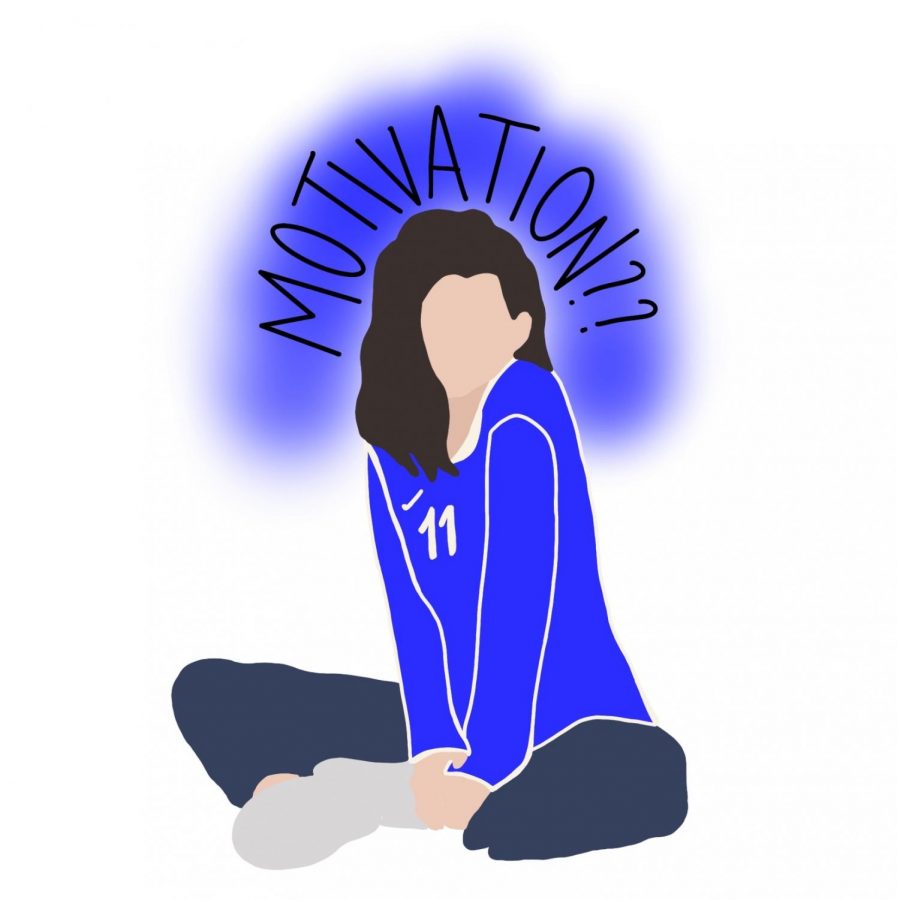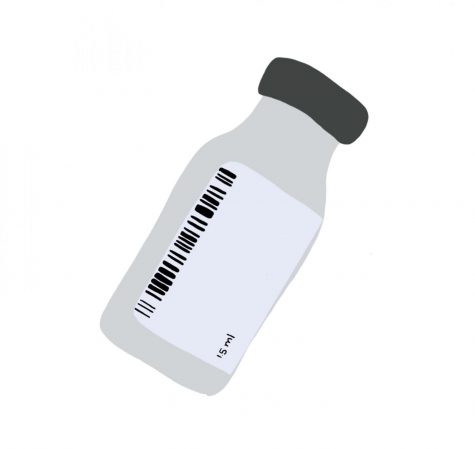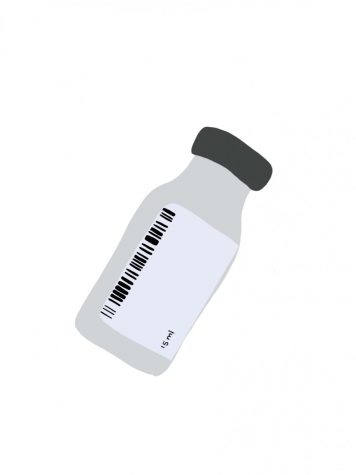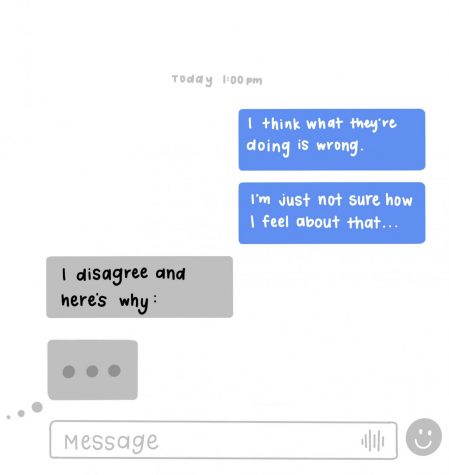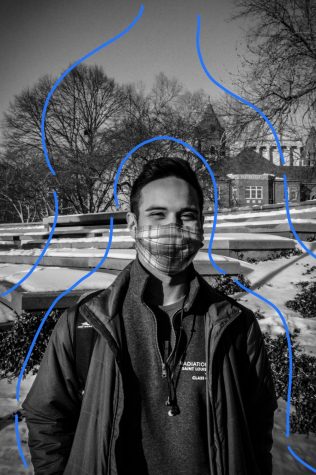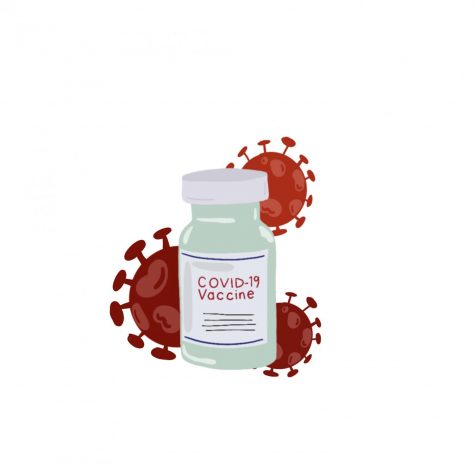Mental Health on the Mind
Checking in on how new restrictions are affecting student athletes
The cancellation of both spring and fall sports in 2020 was devastating to not only the budget of the National Collegiate Athletic Association (NCAA), but to the athletes and coaches that spend their entire year training and preparing for that competition season. Fans missed out on conference tournaments, March Madness, the College World Series, and everything else, with the exception of football, this past fall.
In the desire to watch live sports again, it’s easy to forget that there are student athletes, coaches, trainers, and administrators being put at risk to ensure these games go on. The everyday routine activities that athletes were accustomed to pre-COVID no longer exists and has been replaced with outrageous amounts of COVID tests, socially distanced practices, small group sessions, limited access to coaches outside of normal practice times and extremely restrictive team rules. The work-school-life balance of student athletes has disintegrated in front of them and many are left to see their experience as all sports, little to no social life and a strain on their academic life.
Saint Louis University is one of the many institutions that has decided to allow every sport it sponsors to participate in athletics this spring. SLU sponsors 18 sports, all of which are currently competing both against other universities, but also with each other for space in Chaifetz Arena. The athletic department has one weight room, one training room, two practice courts and one main court within the arena for all the sports to share. On top of that, there are occupancy restrictions that every room has to follow— even though 18 teams are trying to get into the training room at the same time, only four athletes and four trainers are allowed in the room at a time.
While scheduling conflicts create an issue, the quantity of COVID tests endured by in-season athletes per NCAA and SLU rules is vast. Indoor sports have the most because they are considered at highest risk, while outdoor sports have slightly different quotas since they are seen as slightly less at risk. Every week athletes check their emails to see if they won this week’s lottery for another COVID test.
All of these new rules and procedures are just the tip of the iceberg when it comes to the new life of a student athlete. It’s mentally exhausting and physically draining. For months, fall athletes teetered between “we’ll have a season” and “we won’t.” Not only were they concerned about whether they would even play, they also had to consider their own personal views on whether it was even ethical to be playing during a pandemic.
In a survey of SLU student athletes, one third of the responses said they believed it was unethical for sports to be happening during a pandemic. One student athlete elaborated that, “no one from our team is trying to turn professional and we are doing this for ourselves. The pandemic [is] a much wider issue [and we must] put personal enjoyment aside.” Another simply said, “there are more important things than volleyball.”
While 15 athletes believe it to be unethical to be playing right now, the majority believe that there is nothing wrong with continuing athletics with proper precautions in place. One said, “while life should be altered to adjust and be considerate to people of high risk, life must also go on.” Similarly, one said, “we have learned enough about this pandemic to know that our age group is low risk, and sports are a huge [part of our identity]. We lose so much physically and mentally without them.”
Many SLU athletes made comments about how they understand the importance of being safe and cautious, but that without the ability to play their sport, it would be even more detrimental to their mental health than their concern of the pandemic.
91% of the student-athletes said that the pandemic has affected their mental health in some way. While this is a staggering number, a surprising almost 47% said that they could identify something positive that has come out of COVID in their sport. This shows the power of an optimistic mindset and that SLU’s athletes tend to find ways to see the bright side. Some noted that they get more time to spend with their teammates, others recognized that they are more appreciative of the opportunity just to play, while others see the extra year of eligibility the NCAA has extended to every athlete as a positive opportunity to continue their education.
A common positive that athletes pointed out was the opportunity to grow as a team in the unforeseen off season. The ability to practice, despite a lack of competition, helped the fall athletes specifically work out as a team in a way that they have never experienced before. Usually, freshmen are thrown into the mix and competition before really getting time to develop as a college athlete, but this year, fall 2020 was a chance for them to get to know their teammates and systems of play before stepping into competition this spring, an advantage that upperclassmen never got to experience.
Another factor that largely impacts the mental health of a student athlete is their relationship with their coach. The athletes were asked whether or not they believe that their coach cares more about playing their sport than the mental health of their student athletes. Shockingly, ten athletes said they agreed with this statement. It’s discouraging to think that there are athletes who feel so unsupported by their coaches during this time because athletics should never be more important than the student athletes who are participating in them. It’s feelings like this that lead to burnout and the loss of interest in being a student athlete.
The biggest impact that student athletes have seen is from the new restrictions that teams have outside of athletics department-wide COVID protocols. There are rules that every team has to follow put in place by the department, but there are also team restrictions that are individualized to each team. The area of an athlete’s life that has been most affected by these individual team restrictions has been their social life. Athletes were asked to rate on a scale of one to five how much their social, personal and academic lives have been impacted with five being the most restrictive. The mean for social life was just shy of a four. Personal life followed very close behind with a mean of 3.8 and academic life was still above half at 2.58. Often athletes look for these other outlets to give them something to look forward to outside of their sport. With these new team restrictions their outlets are either greatly affected, or completely removed from their life.
Most athletes believe that the restrictions their teams have set are fair, but others believe them to be too restrictive and have said that they do not intend to follow their team’s restrictions to a T. This lack of unity amongst the department and even amongst teammates has created an interesting dynamic because it starts to put doubt in the ability to trust one’s teammates. One athlete disclosed, “I am concerned about how seriously one particular person on my team is handling the pandemic.”
Not only are some athletes doubting their own teammates, there is also concern about how other universities are handling their protocols. Part of being an athlete is traveling and playing other teams in various places around the country. One athlete said, “[I’m] worried about teams that aren’t being as careful as [we are].”
SLU has no control over the protocols of other universities and that can be a hard pill to swallow for athletes who are accustomed to being in control of themselves and their environments. Usually when a coach says “jump” an athlete is expected to respond with “how high?”. With COVID, there is now a lot more freedom for athletes to say “no, thank you.” Athletes can choose to opt out at any point, yet it appears as though that is not the method most athletes choose to take. They have decided to grin and bear whatever challenges are thrown at them, sometimes at the very last minute, just to go on playing for the sake of their mental health.
It’s important to remember that the star athletes seen on TV for the entertainment of college sports fans are people with real concerns about putting themselves and their teammates at risk every day. Now is the time to find ways to continue to support them and be listeners of their concerns. NCAA sports are going to continue on as much as possible, and sometimes there needs to be a reminder about the importance of the people behind the game.
Your donation will support the student journalists of Saint Louis University. Your contribution will help us cover our annual website hosting costs.



